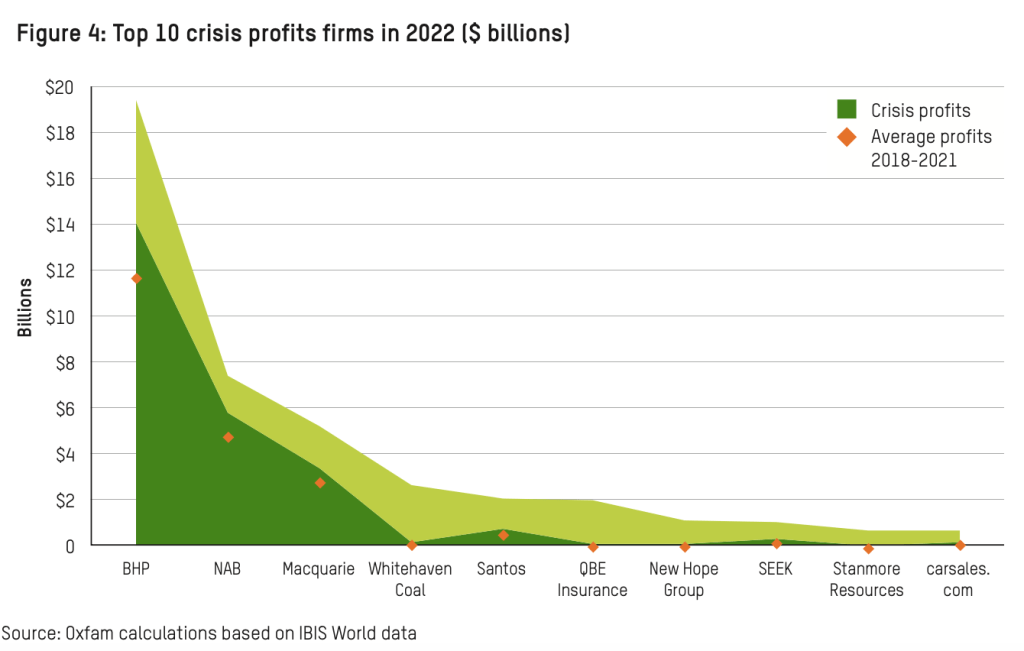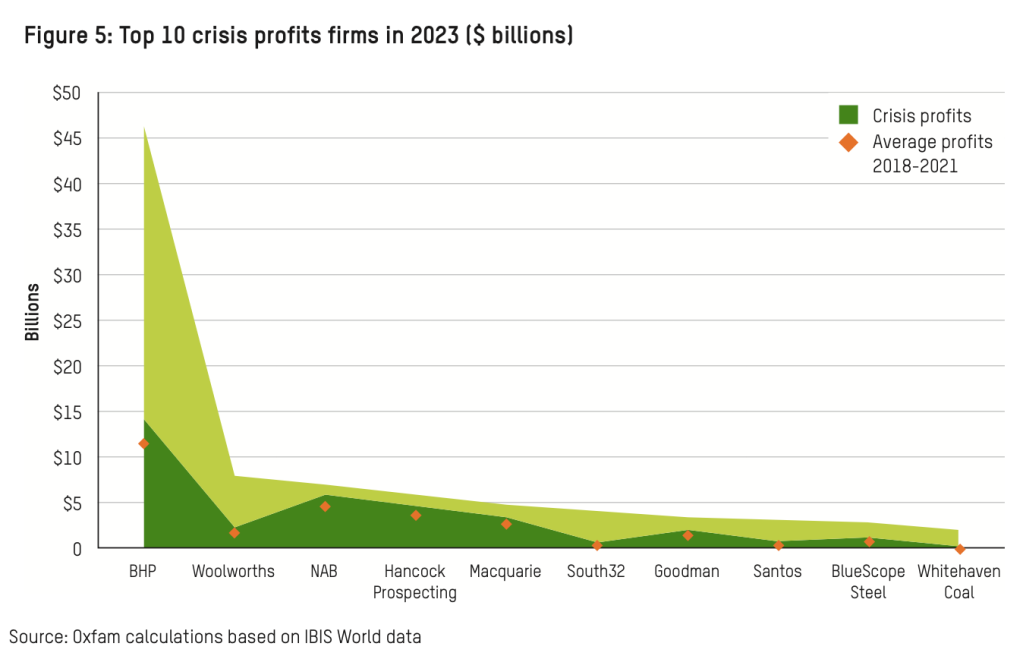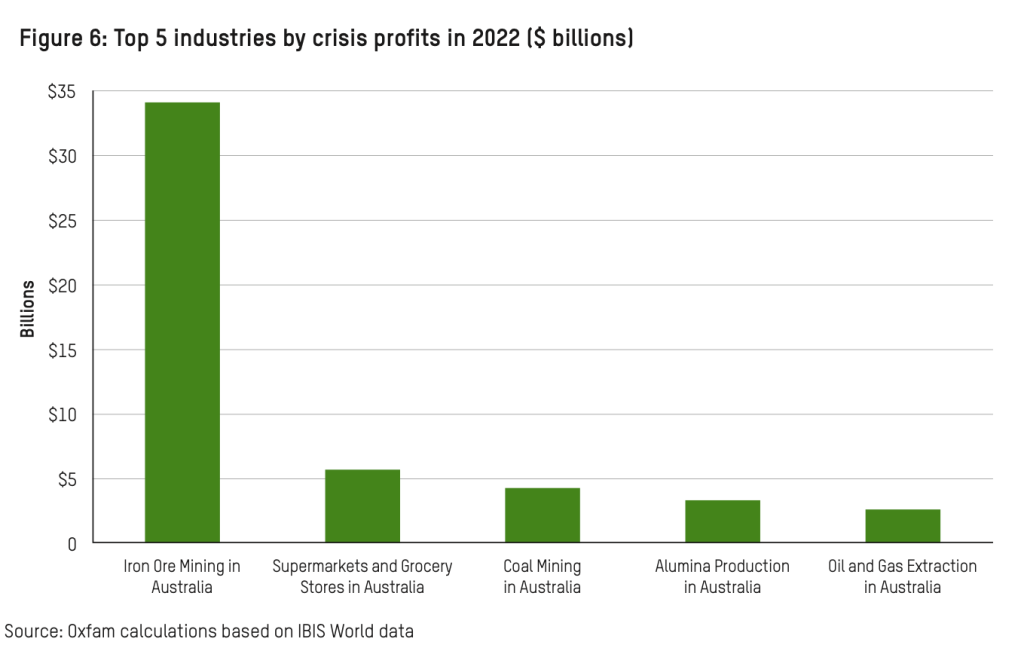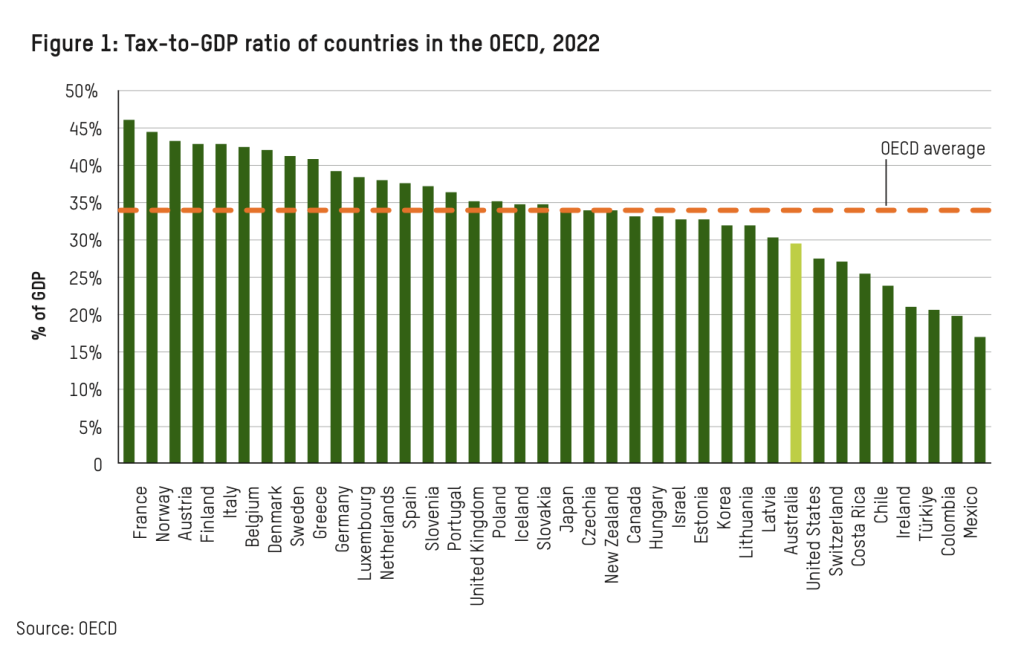Woolworths, BHP, NAB named and shamed as analysis reveals $98 billion in ‘crisis profits’


Woolies has been named and shamed in a report calling out "crisis profits". Photo: AAP
The likes of Woolworths, BHP and National Australia Bank have been accused of profiting from the suffering of millions as the nation has struggled with a cost-of-living crunch since 2020.
A report published on Wednesday by Oxfam Australia found $98 billion in so-called “crisis profits” flowing from the pandemic and Ukraine war have been earned by 500 large companies.
Oxfam chief executive Lyn Morgain says a new tax on windfall profits is needed to curb corporate excess and ensure the benefits of “sovereign wealth” is distributed equitably.
“[$98 billion] is all the money we spent on Covid support for people; it’s all of the social housing we need,” Morgain said.
“This money being in private hands means it can’t be distributed to the population – that’s why tax is so important.”
Companies such as Woolworths, BHP, NAB, Santos, Macquarie, Gina Rinehart’s Hancock Prospecting and Whitehaven Coal feature on the top 10 list for crisis profits (detailed in the graphics below).
‘Crisis profits’ explained
The Oxfam report focuses on two key global developments – Covid-19 and the Ukraine war – and how firms saw their profits skyrocket as a result of these events from 2020 onwards.
Profits derived from the spikes in prices for food, energy and other products since these events were the focus of Oxfam’s analysis, covering about 500 Australian companies.
Crucially, the report considers earnings which are “significantly higher than what would have been achieved under normal conditions”, Oxfam said, meaning those returns are “earned primarily as a result of an event or circumstances”.
Australia’s mining giants are spotlighted in the report for benefitting from huge increases in commodity prices amid the war in Ukraine, while others like Woolworths posted big profits during the Covid-19 lockdowns.
The report also highlights instances of what Morgain called “poor corporate practice” such as the massive wage theft scandal at Woolworths and allegations it price gouged customers.
Woolworths has still not fully remediated workers for underpayments, according to its latest update to investors dated to the end of last year, with millions in entitlements still owed.
“These corporations are taking advantage of their market concentration,” Morgain said.
“We have a toxic combination of a crisis globally in the case of coronavirus that then allows these companies to take advantage of concentration in these markets.”
The big four banks were also named in the report, with a particular emphasis on NAB, which had its own wage theft scandal around underpayment of long service leave entitlements.
The big banks made $32 billion in profits last year alone, Oxfam said, amid a huge rise in interest rates since early 2022 that have squeezed mortgage holders across the country.
Calls for tax
Oxfam isn’t the first group to call for a tax on windfall profits in Australia; it has been a hot topic for decades and came into focus more recently as mining giants cashed in on record commodity prices in 2022-23.
The policy has not received much political traction at the federal level though, with the Labor government repeatedly ruling out any new policies, despite pressure from the Greens.
Morgain said Australians are increasingly aware of the windfall gains corporations are making and how that’s contributing to national inequality, pointing to success stories from other countries that implemented profit taxes, such as Italy, Greece and the UK.
“There’s a growing awareness among Australians that we are a low-taxing nation,” Morgain said.
“Our major failures in the taxation space are at the top end.”












